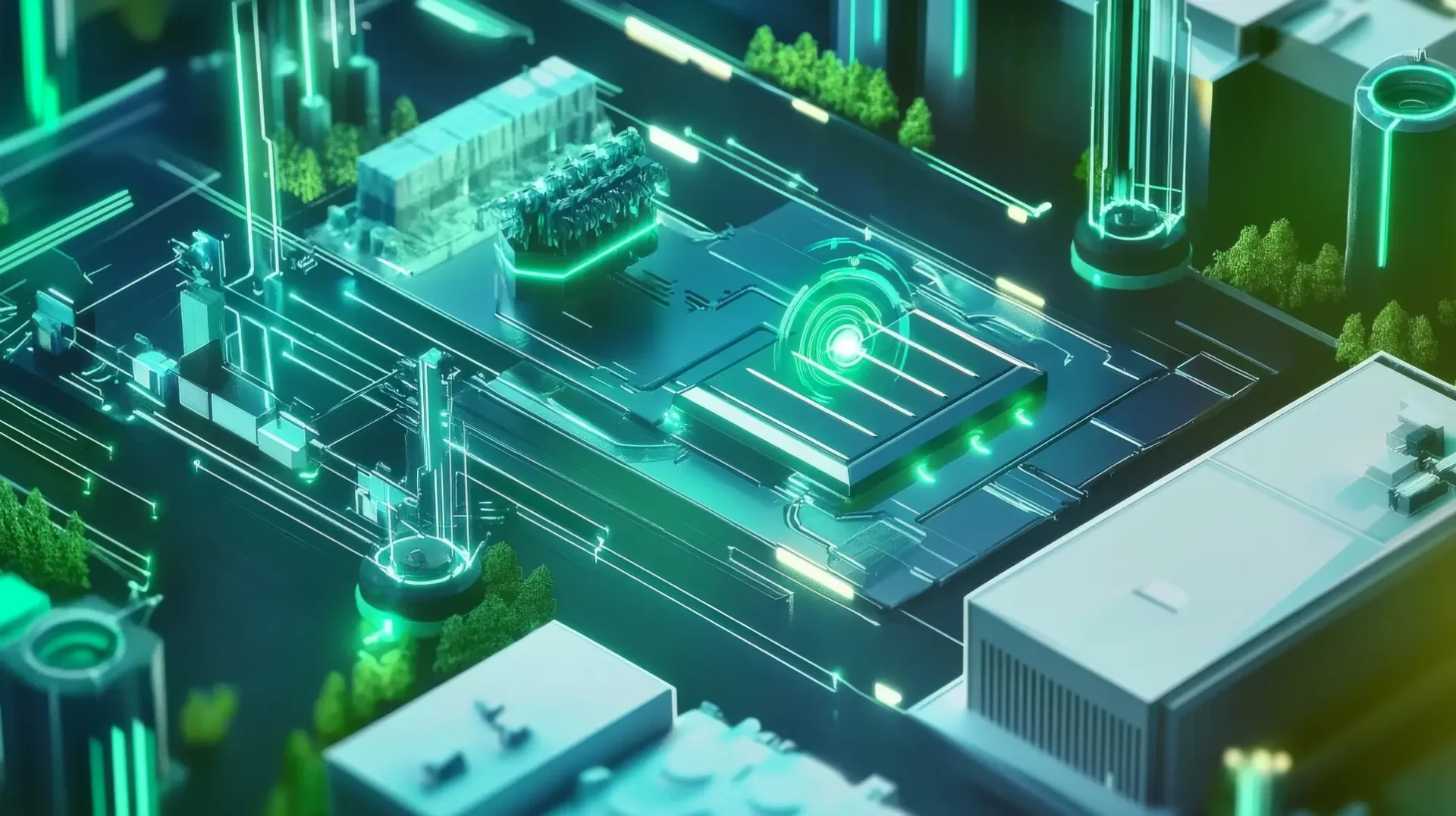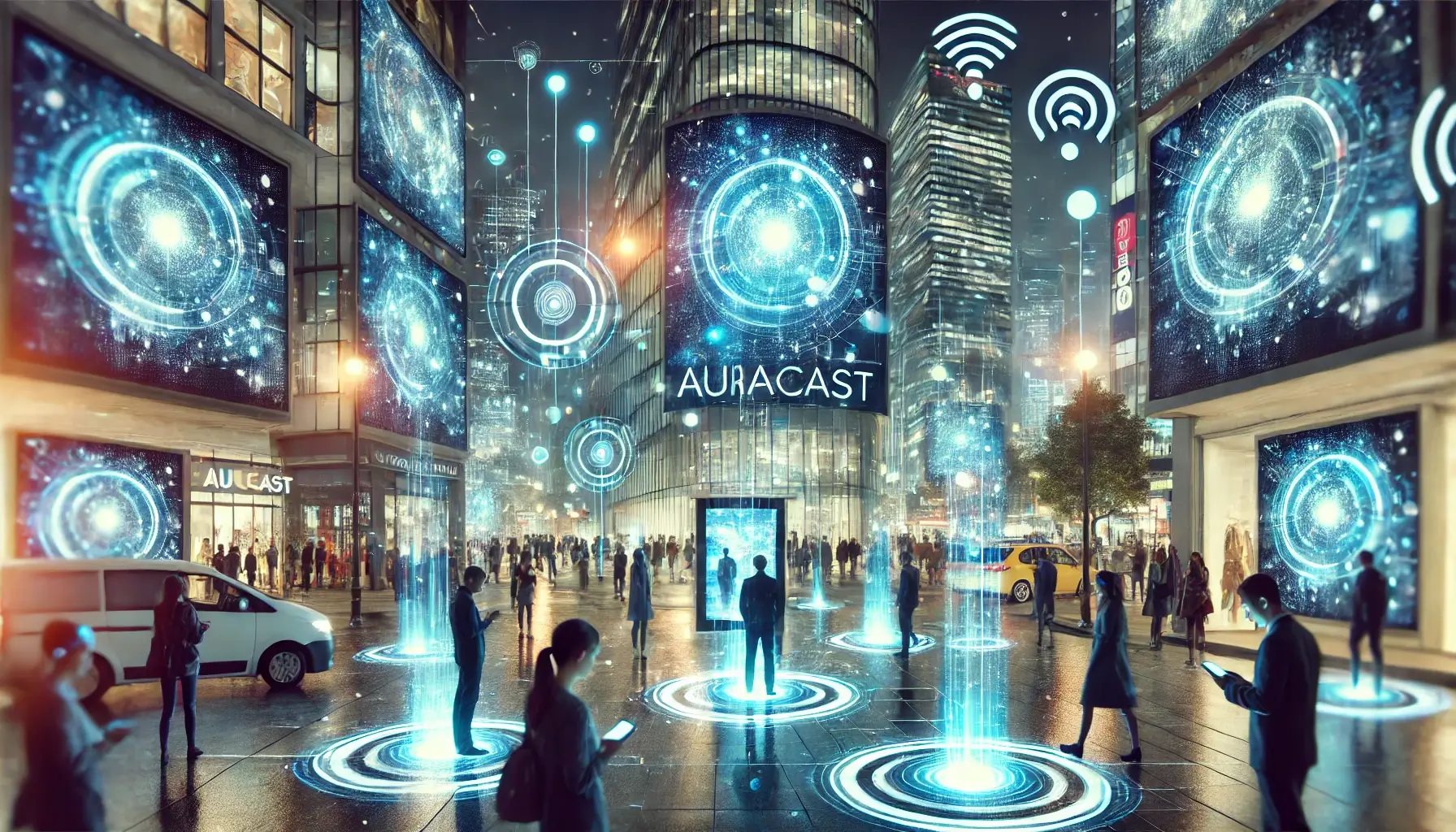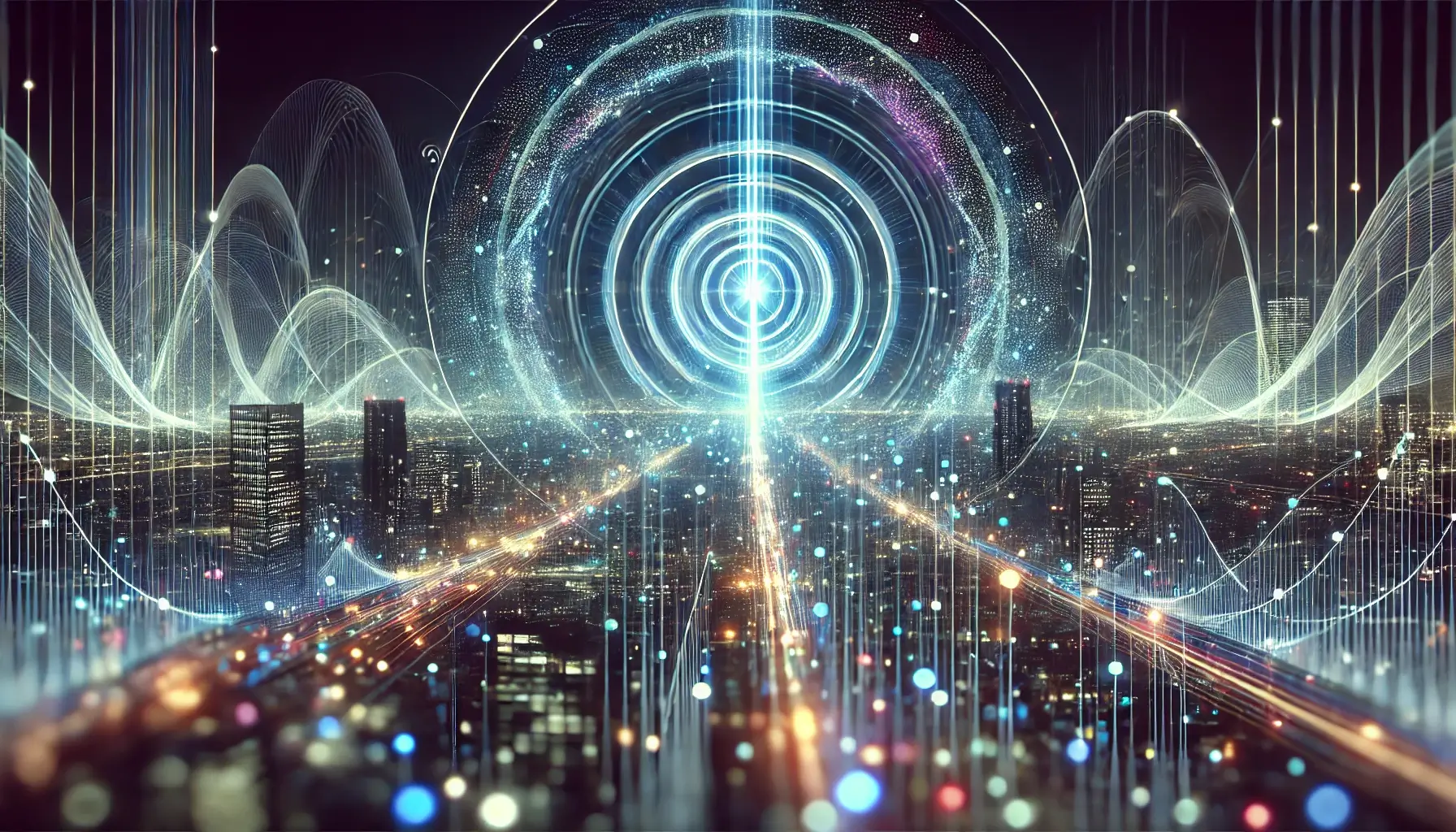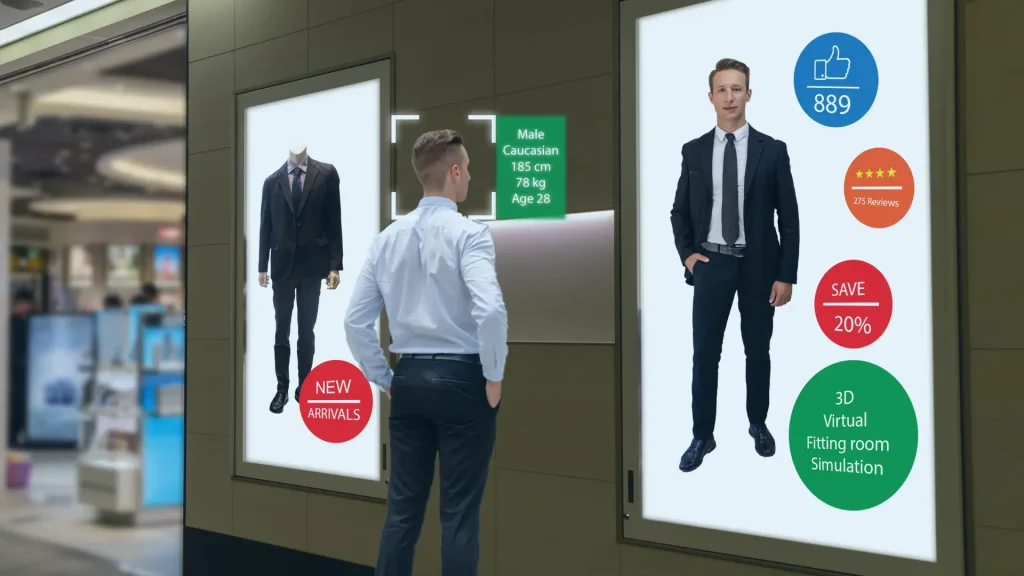In a world in which we have to be increasingly aware of how we use our resources, energy efficiency is becoming more and more important.
In the context of smart homes in particular, there are many opportunities to not only reduce our expenditure, but also to actively contribute to environmental protection.
The evolution of living
Smart homes are no longer just a futuristic concept from science fiction films. They have become a reality and offer immense benefits, including convenience, security and, above all, efficiency. Energy efficiency has become a key factor that not only saves money, but also protects the environment.
How can a smart home help?
Automation: Intelligent thermostats, lighting systems and household appliances can be programmed so that they are only active when they are needed. This avoids unnecessary energy consumption.
Real-time monitoring: Sensors and smart home systems make it possible to monitor energy consumption in real time. This data provides insights that help to identify and change inefficient habits.
Use renewable energies: Integrating solar panels or other renewable energy sources into a smart home not only reduces consumption from the grid, but can even generate surplus energy that is fed into the public grid.

Energy efficiency in the Smart Home
Intelligent control and automation
The basis of an energy-efficient smart home lies in the intelligent control of appliances. Intelligent thermostats automatically adapt to demand and reduce energy consumption without compromising comfort. The automation of lighting systems makes it possible to use energy only where it is needed. Real-time monitoring of energy consumption provides valuable insights to identify and correct inefficient habits.
Integration of renewable energies
A decisive step towards energy efficiency is the integration of renewable energy sources. Photovoltaic systems not only generate environmentally friendly energy, but also enable surplus energy to be fed into the grid.
Future prospects and potential
The continuous development of smart home technologies holds further potential. Artificial intelligence and machine learning will enable systems to adapt dynamically to individual needs. The future could also see increased peer-to-peer energy trading via blockchain technology.
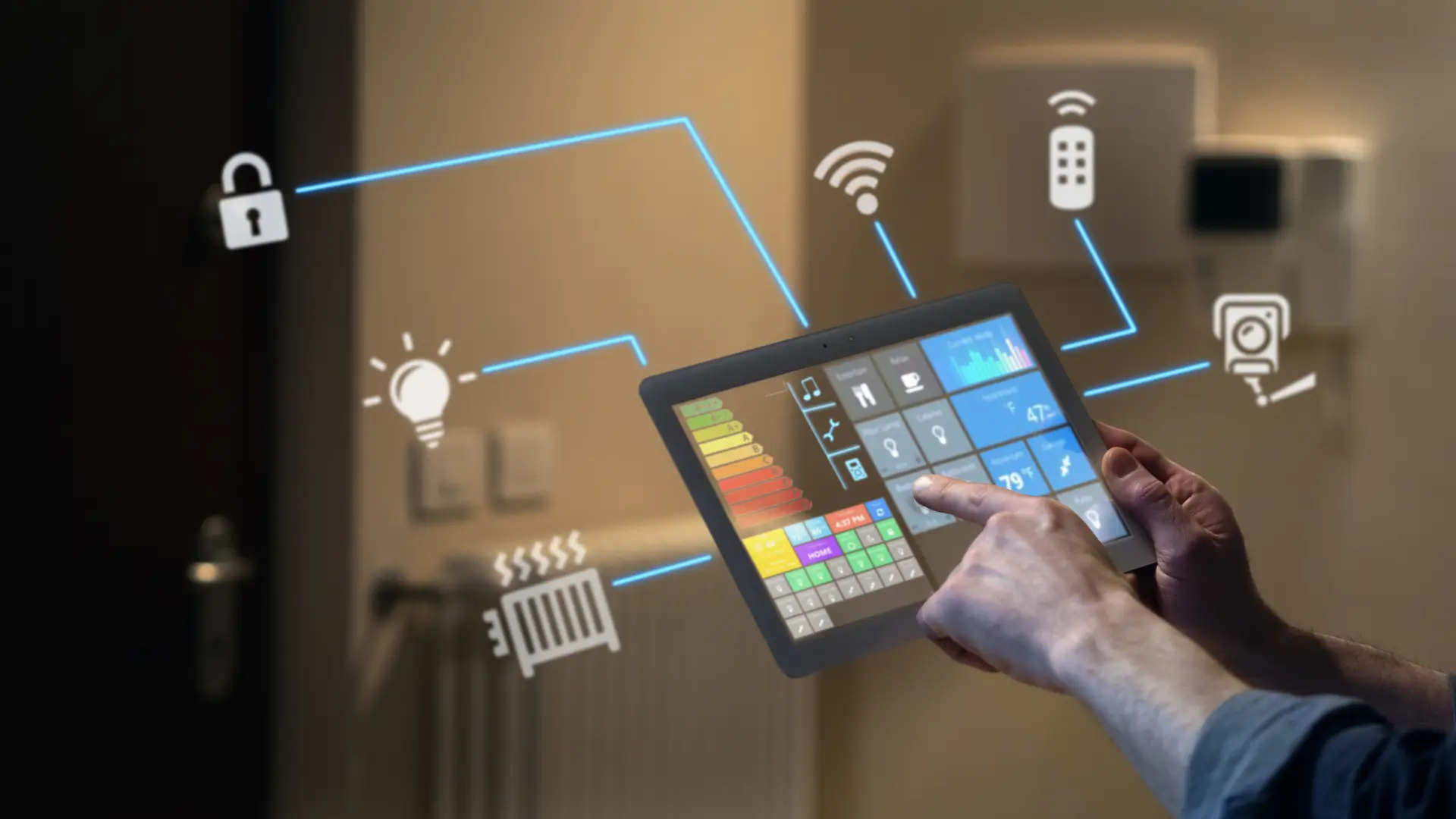
The benefits for the environment and your wallet
The implementation of energy efficiency measures in a smart home offers numerous advantages. Financial savings through a reduction in energy bills are obvious. But the long-term benefits also extend to a reduced environmental impact by minimizing CO2 emissions. These environmental benefits should not be underestimated as they have a direct impact on the health of our planet.

Technological innovations and future outlook
The continuous development of smart technologies promises even more potential for energy-efficient solutions in the Smart Home.
Artificial intelligence (AI) and machine learning will enable systems to continuously adapt to the individual needs and habits of residents, which will lead to even more efficient use of resources.
The integration of blockchain technology could even enable energy to be traded and shared on a peer-to-peer basis in the future, reducing dependence on central suppliers.
Final thoughts
The implementation of energy-efficient solutions in smart homes is not only a technological advance, but also a step towards sustainability. The conscious use of resources through intelligent technologies helps to protect our environment and make our homes more sustainable.
With every energy-efficient step we take in the Smart Home, we are helping to have a positive impact on the environment.
// Conclusion:
The introduction of energy efficiency in smart homes is not just a trend, but a necessity in order to live more sustainably.
The integration of smart technologies enables us to intelligently control our environment and actively participate in reducing our ecological footprint.
Investing in an energy-efficient smart home is therefore not only an investment in the future of living, but also in the future of our planet.









